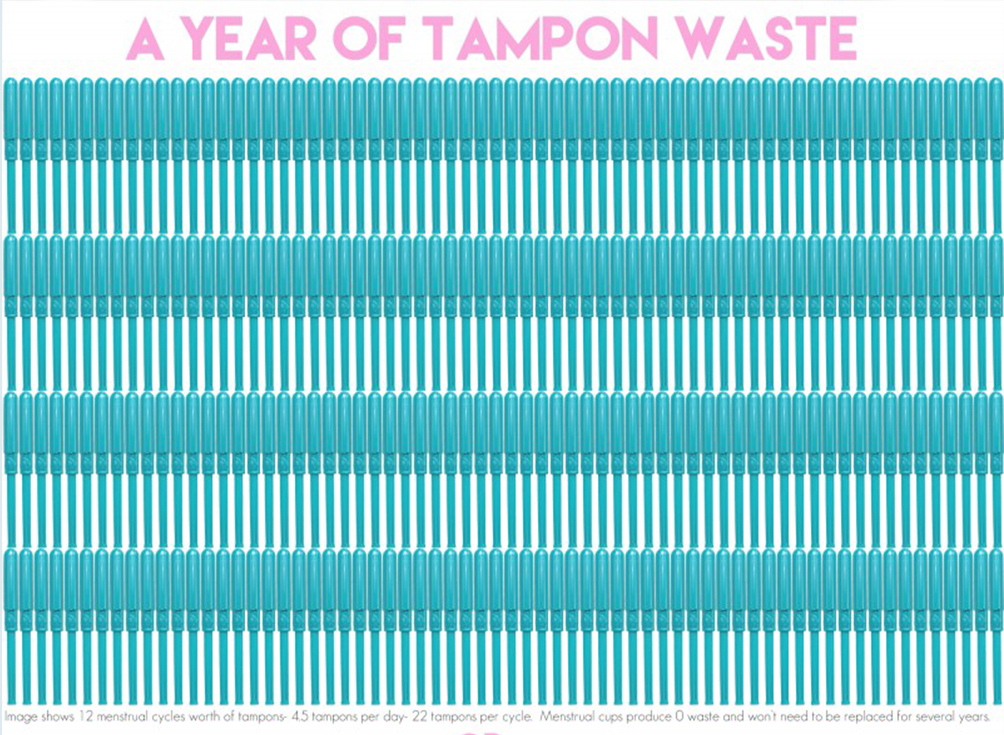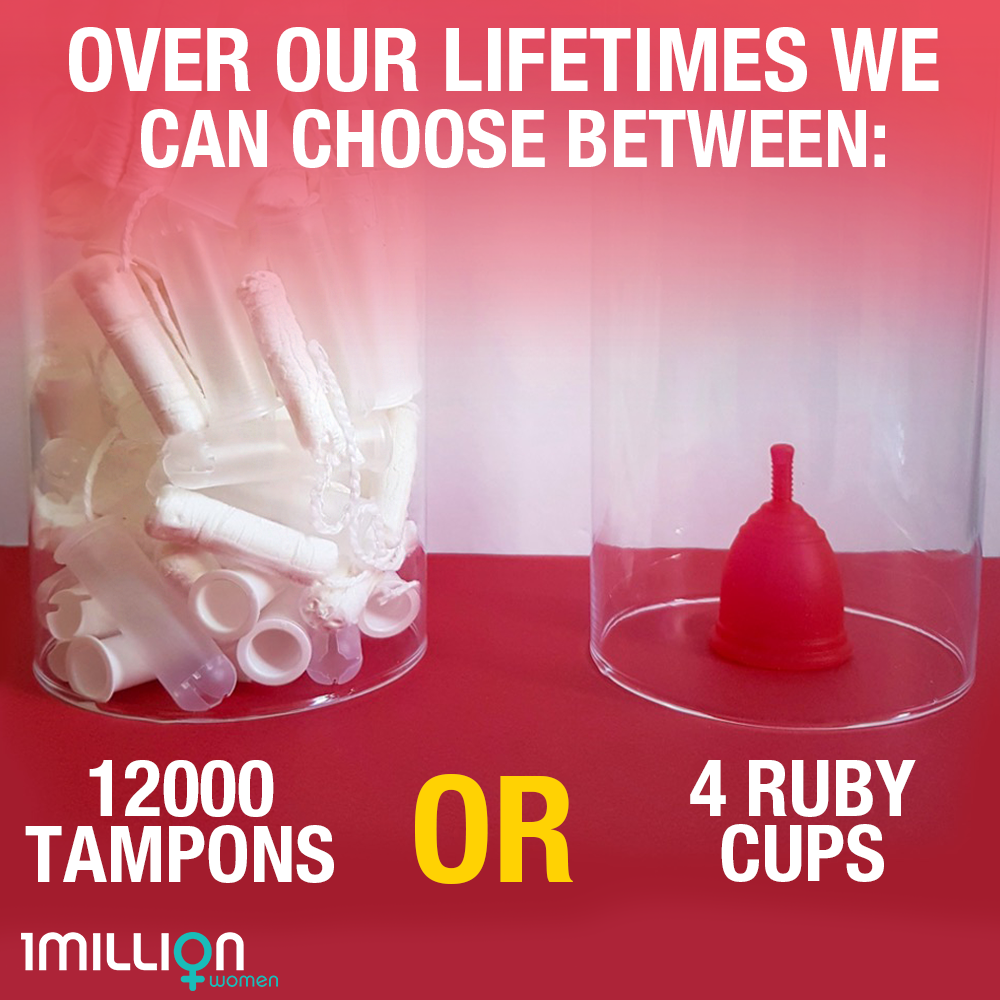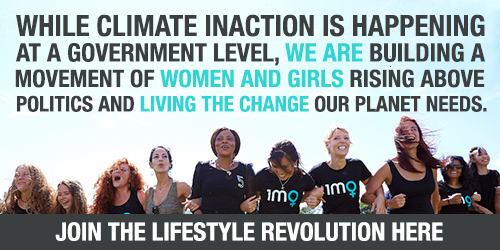Today I'm here to discuss a potentially delicate subject...
Periods. The word alone brings to mind a whole range of experiences.
From ovaries that seem like they are doing a battle to the death, to PMS (a.k.a Pass My Sweatpants, a.k.a Puffy Mid Section, a.k.a Psychotic Mood Shift), the experience is different for each and everyone of us. However, there is one thing similar, and that's the environmental impact of that time of the month.
As such, it's time we had a chat about old Aunt Flo, specifically taking into consideration what impacts essential female sanitary items are having on our planet.
Currently there is a very common "out of sight out of mind" mentality surrounding the issue, but perhaps let us consider a basic equation to put things into perspective.
The average woman uses....
Approximately 20 pads/tampons per month, equating to 240 per year which over the average lifespan of a menstruating female (approximately 40 years worth of periods) gives us the grand total of 9,600 feminine hygiene products used during one woman's lifetime.* Now multiply that by the 3.5 billion women on the planet and we have a considerable amount of avoidable waste!

[Image: Put a cup in it]
Whilst the disposal of the packaging and the actual products themselves contribute largely to the problem, when we take into account the whole lifecycle of the products, things really start to get interesting.
Firstly, we have the raw material extraction which involves the production of cotton (a very water intensive process) and plastics. The plastics used to wrap pads and tampons are known as low-density polyethylene, and these are made from oil. Not a good start.
Secondly, these plastics are long lasting and do not break down easily, and when they do they leach chemicals into the ground. After that we have to take into account transportation, those tampons didn't magically just show up in your handbag, they travelled a long distance to get to you!
And what about all those chemicals used to make tampons and pads? Yep, you need to think about them too. Dioxins (a known carcinogen), chlorines, rayon, plus the herbicides and pesticides that were used in the process of growing the cotton, are all part of the production process.**
Now, I don't know about you, but none of those things sound like they should be getting the green light near our bodies! Although they have been approved as being safe in the amount used per tampon/pad, that is assessing the levels of chemicals for ONE item, not the 10,000 of them used during your whole life. It is similar to examining the health effects of smoking just one cigarette!
Is there a solution? What can you do?
Well there is good news for those who dare. Menstrual cups.

I know, the name isn't too enticing which is why the ones on the market have cute names like Ruby Cup. They are made of medical grade silicone. You just insert, go about your businesses, remove, wash, repeat, and avoid all of the above mentioned nasties. Check out this video for a step-by-step guide to cleaning your menstrual cup.
Investing in a menstrual cup will also save you a whole lot of money over time. According to the Switch Report,
"On average Australian women spend between A$120 and $200 each year on pads and tampons."
With Ruby Cup, it's just one upfront payment and it will last you for up to 10 years. Menstrual cups very quickly become a far more economical option than disposable products.We love our partner Ruby Cup in particular because for every menstrual cup they sell, they provide one to a girl who lives in a place where proper menstrual hygiene products are hard to come by.
Oh and just because we are talking periods, doesn't mean we can't have a giggle. So, for your entertainment, find below a list of euphemisms from around the world. You're welcome!
- The Netherlands: "The tomato soup is overcooked"
- Brazil: "I'm with Chico"
- China: "Little Sister has come"
- Latin America: "Jenny has a red dress on"
- Denmark: "There are Communists in the funhouse"
- England: "I'm flying the Japanese flag"
- Japan: "Little Miss Strawberry"
- France: "The English have arrived"
- Germany: "The cranberry woman is coming"
- Puerto Rico: "Did the rooster already sing?"
- South Africa: "Granny's stuck in traffic"
(P.S. I will be putting the Danish phrase to good use at the first available opportunity!)
*Statistics for average tampon/pad usage from the Diva Cup website: http://divacup.com/community/eco-divas/
**Dioxins being in tampons: http://www.theguardian.com/commentisfree/2015/apr/20/tampon-safety-research-legislation


